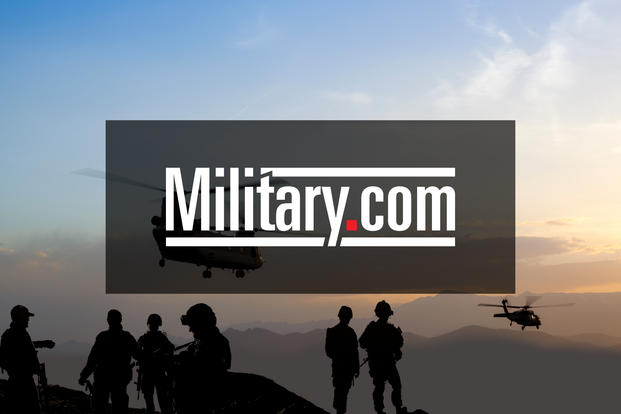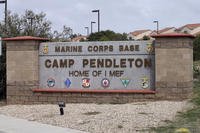The chairman of the Senate Armed Services Committee said Wednesday he sees no need to send U.S. ground troops into Syria to recapture the Islamic State capital of Raqqa, even if the country opts to prosecute the fight without the aid of Kurdish forces.
Speaking to reporters in Washington, D.C., Sen. John McCain, an Arizona Republican, said he "saw no scenario" in which the fight would call for the deployment of ground troops, based on his own analysis of the fight and the strength of the enemy.
"I've been there, inside Syria. I've seen what they can do," McCain said. "I think it would take longer, but I don't think it would speed it up that much if we send American ground forces in. We've got air controllers, we've got a whole lot of advisers there, but I wouldn't advise sending ground troops in."
Deploying additional ground troops is reportedly one of the options Pentagon leaders presented to President Donald Trump to accelerate the fight against the Islamic State of Iraq and Syria, also known as ISIS. As anti-ISIS forces close in on Raqqa, some U.S. forces have already been strategically placed in the region to provide additional support.
In late February, an artillery detachment of several hundred Marines quietly moved into northern Syria to establish an artillery base to provide fire support to friendly forces in the Raqqa fight. A team from the Army's 75th Ranger Regiment has also established a visible presence in the region, operating Stryker vehicles displaying large American flags in Manbij, about 85 miles to the northwest.
Now the White House is reportedly considering a plan to send another 1,000 troops to Syria in support of the fight.
Rep. Mac Thornberry, the chairman of the House Armed Services Committee who also spoke to reporters Wednesday, was unwilling to rule out a deployment of additional troops entirely.
"We have been overly constrained on numbers of people, what they can do, permissions and so forth, so this is more like a dial rather than a light switch," the Texas Republican said. "There are situations where U.S. security is going to be directly threatened, and any president has to have the option to use U.S. military to deal with it."
Both officials agreed the U.S. was now faced with a troubling conundrum concerning whether to formally partner with Kurdish militia forces on the Raqqa assault. Turkish President Recep Tayyip Erdoğan has been adamant in his insistence that the Kurds not be involved, as Turkey has longstanding conflict with the Kurdish people and considers certain Kurdish groups to be terrorist organizations.
McCain said the U.S. stood to see lost or limited access to Turkey's Incirlik Air Base if a partnership with the Kurds was realized -- a development that would hurt American presence in the region for this and future fights.
But without the Kurdish militia forces, he said, the fight will be slowed, even as Raqqa continues to produce terrorists who post a threat to the U.S. Even without the Kurds, he said, he didn't believe the fight required U.S. ground forces.
McCain proposed sending Defense Secretary Jim Mattis or National Security Adviser Army Lt. Gen. H.R. McMaster for a formal conversation with Erdogan, to restore a line of communication with the Turks that he said had been lost.
"There's no doubt the Kurds are great fighters. I'm a great admirer of the Kurds," he said. "But we also understand that without the Turks, we will take Raqqa, but it will take a lot longer time … it's an enormous challenge, and that's got to be addressed."
-- Hope Hodge Seck can be reached at hope.seck@military.com. Follow her on Twitter at @HopeSeck.




























